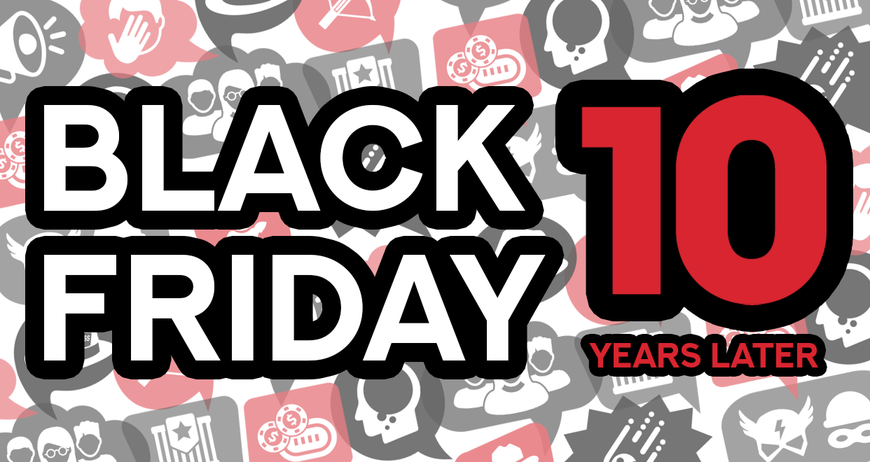
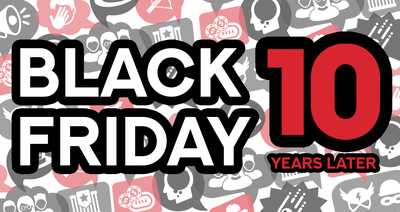
Ask anyone that was involved in online poker at the time, and they will probably be able to tell you where they were on April 15, 2011 and how they found out that the US government had effectively shutdown online poker in America.
On that day, indictments were unsealed against 11 individuals associated with the largest online poker operators serving the US. In addition, their internet domains were seized along with 75 bank accounts from 14 countries as authorities sought a minimum of $3 billion in in civil money laundering penalties and the forfeiture of funds.
In an instant, the bankrolls of US online poker players were gone. Eventually, players would be made whole, and while some funds would be returned in a matter of days, in some cases, it took more than six years to complete the disbursement of funds.
In the end, there was plenty of blame to be spread around and lessons to be learned.
Looking back at the events that surrounded that infamous day and the impact they had on the trajectory of online poker is an interesting story when viewed through the eyes of some of the people that were on and behind the scenes at the time.
Over the course of the next week, we will publish a series of articles in which industry insiders, poker ambassadors, and poker media members share some of their recollections and opinions about perhaps the most significant day in online poker history.
In this article, we sought the opinions of:
- Eric Hollreiser, the former Head of Global Poker Marketing and Corporate Communications for PokerStars
- Mason Malmuth, the owner of Two Plus Two Publishing and the Two Plus Two Poker Forums, where players gathered to discuss the events following Black Friday
- Jeff Ifrah, renowned igaming attorney that acted as a conduit between some of the people behind the scenes and the poker community
- Alex Scott, an employee at PokerStars prior to Black Friday and an employee at Full Tilt when Black Friday happened
Eric Hollreiser
What was the biggest positive/negative for online poker that came out of Black Friday and why?
There are exactly zero positives that are a direct outcome of Black Friday.
On a human level, the biggest negatives are the personal losses (financial, emotional, professional) endured by so many poker players.
Any and all of the positive industry developments since 2011 were an inevitable result of a maturing entrepreneurial industry: regulations to provide safe access for consumers, including safety of their funds; consumer protections for vulnerable players; innovation in software, games and marketing; better business practices amongst professional operators, etc. Indeed, the direct outcomes of Black Friday slowed and hindered those developments, while denying access to millions of Americans and undeniably hurting many thousands of people in the process. And very few Americans have experienced those positive developments.
On a human level, the biggest negatives are the personal losses (financial, emotional, professional) endured by so many poker players. Even those players whose funds were safe with PokerStars and those players who were eventually repaid their Full Tilt bankrolls by Stars, were denied the opportunities of online poker as a career, or as a past-time.
On an industry level, the greatest negative is that Black Friday halted the progress that had been achieved toward a federally regulated online poker market in the U.S. and undermined the efforts of those who were improving online poker’s reputation. It also handed a big stick to entrenched opponents of online poker who used it to batter those of us who were fighting for a safe and regulated industry in America. It’s sad to think about the lost time, money and momentum that was devoted to defending these attacks. If we had been able use that bandwidth to advance the game, advance legislation and advance innovation we’d have a bigger, better and safer industry in America (and globally) today.
What lesson did the poker community fail to learn from Black Friday?
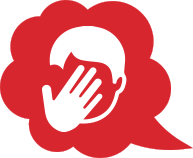 Any failure to learn lessons is less on the poker community than it is on politicians: prohibition fails every time and law enforcement actions are a poor replacement for responsible governance. So if that’s a lesson for politicians, the lesson for the poker community is that “there’s no free lunch.” If you want change you have to positively contribute to the change you want. Individually we can do that: support companies and industry organisations that are ethical and responsible, advocate for regulation at state and federal levels, and elect politicians who will respect the ways in which online poker is a positive economic, social and entertainment force.
Any failure to learn lessons is less on the poker community than it is on politicians: prohibition fails every time and law enforcement actions are a poor replacement for responsible governance. So if that’s a lesson for politicians, the lesson for the poker community is that “there’s no free lunch.” If you want change you have to positively contribute to the change you want. Individually we can do that: support companies and industry organisations that are ethical and responsible, advocate for regulation at state and federal levels, and elect politicians who will respect the ways in which online poker is a positive economic, social and entertainment force.
prohibition fails every time and law enforcement actions are a poor replacement for responsible governance
I’d add that the more recent gold rush for sports betting in America, which most poker players understandably support, is ironically hindering the progress for online poker. Black Friday and the loss of the American market made it a very challenging environment for a poker-only company and contributed to poker-only companies needing to expand into sports betting. This contributed to the wave of global consolidation of online gambling companies.
The big operators interested in serving Americans today — with perhaps one notable exception — are spending their resources on promoting sports betting legislation and are very ready to sacrifice online poker in the process. That’s because online poker is marginalised in these big companies, mostly for financial reasons. And given the unique complexities of poker as a game, regulating it in an effective way requires unique attention and a level of understanding of the online game that — unfortunately — most people lobbying for sports betting don’t have. It’s much simpler to talk about sports and sports betting, which most lobbyists, politicians and regulators can understand because so many of them have experience taking a punt on a sports event. The big sports betting companies either don’t understand what’s needed for quality poker regulation or struggle to communicate it effectively … or both.
We need experienced, rational voices focused on doing what’s best for online poker and for online poker players.
If you think about the development of online poker in terms of a person, it’s a teenager who’s growth was stunted in 2011, lost a decade to adolescent indulgences (and was banished to their bedroom) and today remains immature and sometimes acts like it. We need experienced, rational voices focused on doing what’s best for online poker and for online poker players. But most of those voices have moved on by cashing out, dropping out, focusing on other industries (crypto, fintech, esports, etc.) or some combination.
Was Black Friday ultimately good or bad for online poker and why?
Nothing good came from Black Friday that wouldn’t have been achieved in a less destructive way.
Mason Malmuth
How did you find out what happened on Black Friday?
I found out about it when I looked at our website and saw a massive number of people on it.
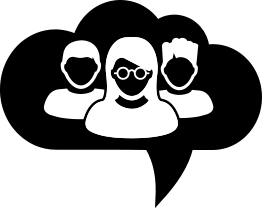 Who do you think are some of the biggest heroes and villains of Black Friday and why?
Who do you think are some of the biggest heroes and villains of Black Friday and why?
I don’t know if there were any heroes. Perhaps we were since www.twoplustwo.com gave people a place to communicate with each other and gain an understanding of exactly what happened. The villains were clearly Preet Bharara, Eric Holder, and perhaps Barack Obama if he knew about it. You can also include the US Congress for attaching the UIGEA to the Safe Ports Act.
What were the biggest challenges your business faced as a result of Black Friday?
The biggest challenge we had was how much to scale it back since much of what we do, such as printing books, was now going to be smaller.
How is your business different today because of Black Friday?
It’s not any different, just smaller.
Jeff Ifrah
What was your role on and after Black Friday and how did you find out what had happened?
My primary role after Black Friday was to work on ensuring poker players were paid back and lobbying States like New Jersey to pass online poker legislation.
Who are the heroes and villains of Black Friday and why?
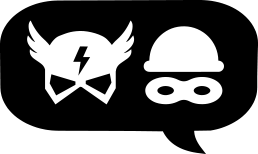 May sound strange, but Chris Christie may be the hero of the post-Black Friday Era. In 2013, along with the State of Delaware, New Jersey drafted and passed online poker legislation in the aftermath of Black Friday to help get online poker back on track in the US! Since then online poker has been legalized in Nevada, Michigan, Pennsylvania and West Virginia!
May sound strange, but Chris Christie may be the hero of the post-Black Friday Era. In 2013, along with the State of Delaware, New Jersey drafted and passed online poker legislation in the aftermath of Black Friday to help get online poker back on track in the US! Since then online poker has been legalized in Nevada, Michigan, Pennsylvania and West Virginia!
Alex Scott
How did your job change as a result of Black Friday?
I started working for Full Tilt Poker exactly two months before Black Friday. Black Friday changed everything!
I had been hired to lead product design at Full Tilt, designing new software features. As a result of what happened, the company was forced to make hundreds of redundancies, and a lot of talented people also left of their own accord. I was lucky enough to survive the cuts and my role grew to take up some of the responsibilities of people who had departed.
I pitched our product roadmap to prospective investors and sat in meetings discussing business strategy, finances and relaunch plans — things I never would normally have been involved in.
What were the biggest challenges you faced in your job as a result of Black Friday?
Most of us weren’t aware of the intricacies of how payments were being processed, or how shaky the legal arguments were
Besides the new responsibilities, which I was hardly prepared for, the biggest challenge was the morale at the company — which tanked when it became clear that we were not going to relaunch quickly and jobs were at risk. I’d say about half of people checked out at that point.
How did you find out what had happened on Black Friday?
I was browsing 2+2 when I found out, if I remember correctly I was killing time before heading out for a colleague’s leaving drinks. The night of Black Friday was surprisingly normal, at least for the group I was out with — I imagine it was quite different for the CEO and directors.
The prevailing opinion was that this was a temporary blip. Either we’d exit the US and carry on doing business elsewhere in the world, or it would all get worked out and we’d be open in the US again soon. Remember that at the time, many of us, especially the more junior members of the team, believed we’d been operating legally in the US because poker was a skill game and not gambling. Most of us weren’t aware of the intricacies of how payments were being processed, or how shaky the legal arguments were.
some argue that Black Friday was necessary for online poker to be regulated in the US. If that’s true then it may be a genuine positive for the industry in the long term, but we are a long way off at the moment
Was Black Friday ultimately good or bad for online poker and why?
I believe it was overwhelmingly negative. Many players lost substantial sums of money, and in some cases their entire livelihoods. It was life changing for a lot of people.
Beyond the damage to individuals, the entire industry suffered. Hundreds of millions of dollars disappeared from the ecosystem. Trust in online poker providers (other than PokerStars, who did an exceptional job of handling the fallout) dropped to an all-time low. In the years thereafter, the loss of Full Tilt — and in real terms it was a loss, as it could never have thrived under its new ownership — killed PokerStars’ only close competitor. With no close competition (and later on, distracted by M&A and the pressures of repaying a huge debt) PokerStars became complacent.
For years after Full Tilt’s demise in 2011, PokerStars failed to deliver any significant product innovation. This lack of competition coincided with the segregation of many more European markets and led to a significant drop in online poker liquidity, especially in cash games, that hurt smaller operators the most.
What is your most vivid memory of Black Friday?
 My most vivid memory is actually from two months later. I had just learned that the AGCC had suspended our licence, the site was being taken offline, and that we were preparing to relaunch from Kahnawake. I vividly remember walking past the CTO and sharing a knowing look with him that meant ‘this is really bad’. Up until that point, morale was actually pretty good.
My most vivid memory is actually from two months later. I had just learned that the AGCC had suspended our licence, the site was being taken offline, and that we were preparing to relaunch from Kahnawake. I vividly remember walking past the CTO and sharing a knowing look with him that meant ‘this is really bad’. Up until that point, morale was actually pretty good.
What was the biggest positive/negative for online poker that came out of Black Friday and why?
It is difficult to think of a positive, although some argue that Black Friday was necessary for online poker to be regulated in the US. If that’s true then it may be a genuine positive for the industry in the long term, but we are a long way off at the moment.
How did Black Friday affect the evolution of online poker?
I think I’ve answered this above where I spoke about competition and the decline. It might be worth noting that Full Tilt had actually overtaken PokerStars in the USA by the time Black Friday happened (although PokerStars was far bigger outside the US and in general). But who knows what would have happened, had Black Friday not occurred?
Do you think players’ money is safer or more at risk as a result of Black Friday. Why or why not?
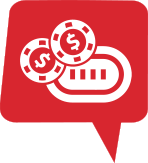 I don’t think it is meaningfully safer. Players are more aware of fund protection, which is a good thing. Regulators like the UK Gambling Commission have required that operators tell players how their funds are protected. And the Full Tilt situation did provide a neat case study into how unmitigated risk-taking and poor corporate governance can bring down a company making 9 figure annual revenues.
I don’t think it is meaningfully safer. Players are more aware of fund protection, which is a good thing. Regulators like the UK Gambling Commission have required that operators tell players how their funds are protected. And the Full Tilt situation did provide a neat case study into how unmitigated risk-taking and poor corporate governance can bring down a company making 9 figure annual revenues.
But being pragmatic, if the company that holds your money goes bust, it will always be difficult to get that money back, even if it’s strongly protected. This is because legally, you are just a creditor of the company, just like anyone else it owes money to — like its suppliers, its landlord, its affiliates and so on (employees do get a bit more protection, generally).
Without a change in the law, keeping your money at an online gambling site (or with any other business) will never be without risk. Cryptocurrency might have a solution for this, but I doubt it will be mainstream.

